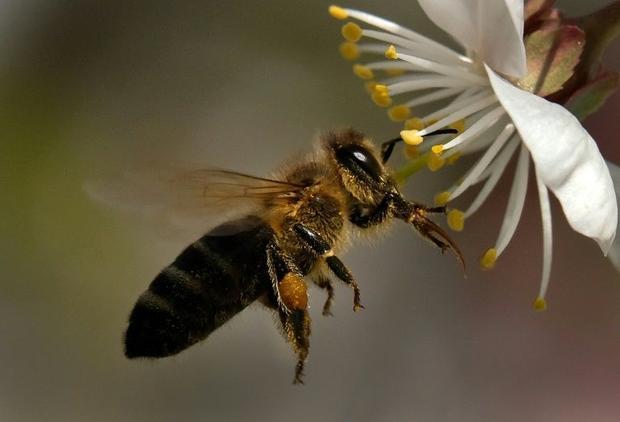The move by member states is a major extension of existing restrictions put in place in 2013.
Numerous studies have shown that pesticides and neonicotinoids, in particular, are harmful to bee populations and other insects, worms, and even birds. And while the studies have been consistent on the issue, many governments have been reluctant to implement measures to protect honeybees, owing in part, to the pesticides being cheap and effective and heavy lobbying by the chemical industry to keep them on the market.
The vote came about owing to a recent report from the European Food Safety Authority (Efsa), which found that neonicotinoids posed a threat to many species of bees, no matter where or how they are used in the outdoor environment.
“The Commission had proposed these measures months ago, on the basis of the scientific advice from the European Food Safety Authority,” said EU Commissioner for Health and Food Safety, Vytenis Andriukaitis.
However, on Friday, despite strong objections by the chemical industry, EU member states instituted a ban on neonicotinoids which will come into force by the end of this year. The ban will protect bees and is the first time such a wide-scale ban has ever been approved, reports ZME Science.
“Member states’ representatives have endorsed a proposal by the European Commission to further restrict the use of three active substances … for which a scientific review concluded that their outdoor use harms bees,” the European Commission said in a statement.
The ban covers three substances, including imidacloprid (which is developed by Germany’s Bayer CropScience), clothianidin (also created by Bayer CropScience, as well as Japan’s Takeda Chemical Industries), and thiamethoxam (from Switzerland’s Syngenta).
All outdoor usage of the three substances is banned. They may be used inside greenhouses, despite some environmental groups having reservations about the chemicals leaching into water supplies. Other neonicotinoids, including thiacloprid and sulfoxaflor, will continue to be exempt from the ban, according to the BBC.
“Banning these toxic pesticides is a beacon of hope for bees,” said Antonia Staats, from Avaaz. “Finally, our governments are listening to their citizens, the scientific evidence and farmers who know that bees can’t live with these chemicals and we can’t live without bees.”
Not everyone is happy with the regulations
The restrictions apply to crops that include maize, wheat, barley, oats and oilseed rape. The strange thing is that farmers are saying the increased restrictions are not warranted because the partial restrictions have not delivered results.
“The Commission hasn’t been able to find that these restrictions have delivered any measurable benefits for bees,” said Chris Hartfield from the National Farmers’ Union (NFU) in the UK. “That has been a big question for us, and if we can’t be certain they can deliver measurable benefits why are we doing this?”
“The irony of the current restrictions is that it has led to the decline of oilseed rape being grown in the UK and that’s reflected across the whole of Europe,” Hartfield said.
Regardless of which side of the issue people may choose to be on, we are entering a time where farmers are going to have to learn how to work with nature. “It’s a significant indication that we need a different form of farming across Europe that farms with nature and not against it,” said Sandra Bell from Friends of the Earth.
“The ban on neonicotinoids could be a really important step towards a more general questioning of the use of pesticides and the harm they are doing to our environment.”














